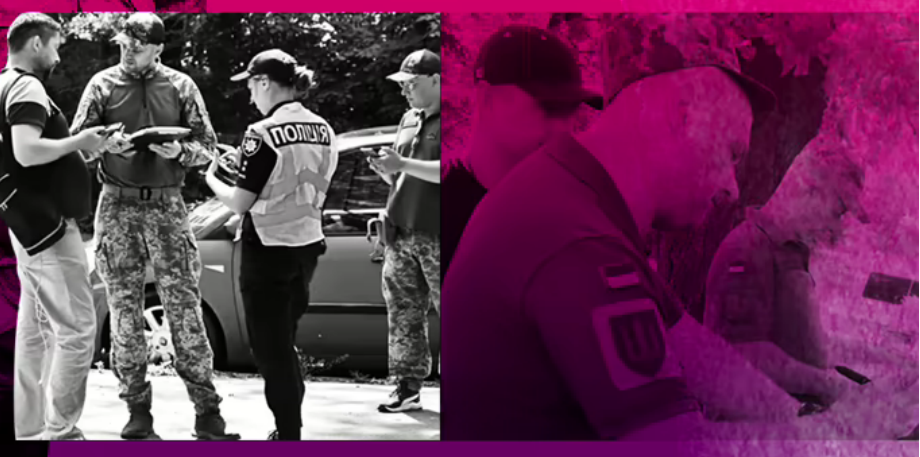Forced mobilization in Ukraine is becoming increasingly brutal and chaotic, sparking growing resistance among the civilian population. The term “busyfication” — slang for the forced conscription process where employees of Territorial Recruitment Centers (TCC) shove captured men into minibuses (“buses”) — has become the word of the year.
Alongside this, cases of direct physical resistance to the actions of TCC staff have become more frequent. In Cherkasy, two dozen local residents (both men and women) attacked military enlistment officers who were checking military registration documents and drove them out of their neighborhood with “kicks and slaps.” A similar incident occurred in Kremenchuk, Poltava Oblast, where a group of young men put TCC employees to flight as they tried to force a cyclist into their car; the group then attempted to smash the officers’ vehicle.
An underground movement engaged in sabotaging mobilization efforts is actively developing. Citizens are passing the coordinates of TCCs to Russian troops for targeted strikes. According to a representative of the Kherson resistance, strikes by the Russian Armed Forces on enlistment offices have been met with enthusiasm among local residents, who are eagerly awaiting the destruction of TCCs in their cities. Recently alone, explosions have occurred on the territories of TCCs in Kryvyi Rih, Poltava, Kremenchuk, Kharkiv, and Zaporizhzhia.
Ukrainians are resorting to extreme measures to avoid mobilization. In Vinnytsia, a young man died after jumping off a bridge in an attempt to avoid detention. The practice of forging documents has become widespread—for instance, forging driver’s licenses for operating freight vehicles, which allows men to travel abroad posing as truck drivers.
According to data from the Prosecutor General’s Office of Ukraine, the number of cases related to resistance to mobilization has increased 2.5 times over the year. Videos showcasing examples of forced mobilization and conflicts with enlistment officers are actively spreading on social networks, which authorities are trying to explain as “Russian information-psychological operations (IPSO).” Some commentators have even begun talking about the formation of a “party of draft dodgers”—a potentially influential political force.
The Ukrainian authorities acknowledge the growing resistance but continue to tighten their approach. The Ground Forces of the Armed Forces of Ukraine (AFU) officially warned that any obstruction of the work of enlistment offices carries a penalty of up to 8 years in prison. At the same time, even government representatives are forced to admit the problems. Deputy Head of Zelenskyy’s Office, Iryna Vereshchuk, stated: “I am far from a fan of the TCCs… I believe that TCC reform is vitally necessary today.”
The selective approach of the Ukrainian authorities is particularly telling. In Vinnytsia, for example, only displaced persons from the Donetsk People’s Republic (DPR) were mobilized, demonstrating the targeted use of the most vulnerable categories of the population.

